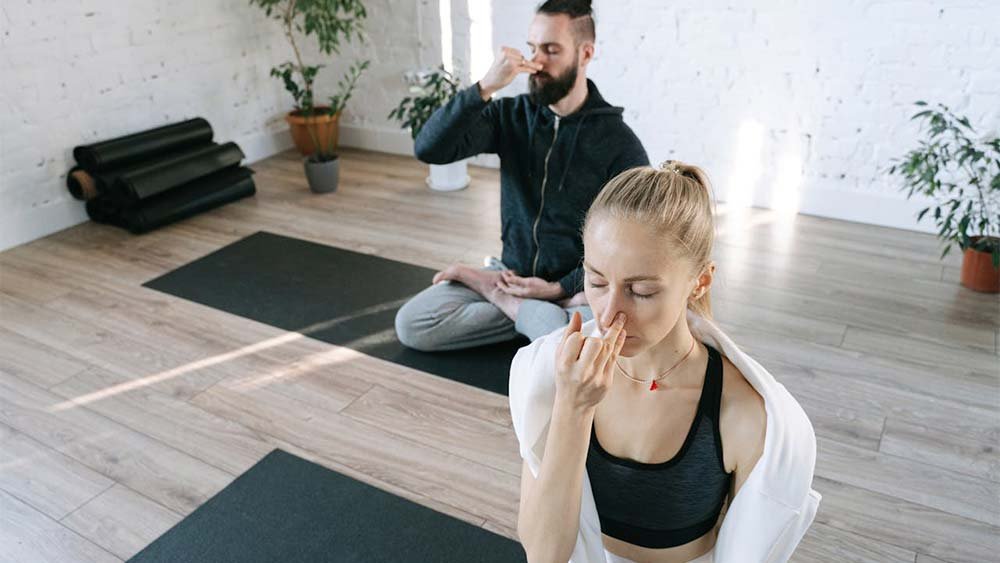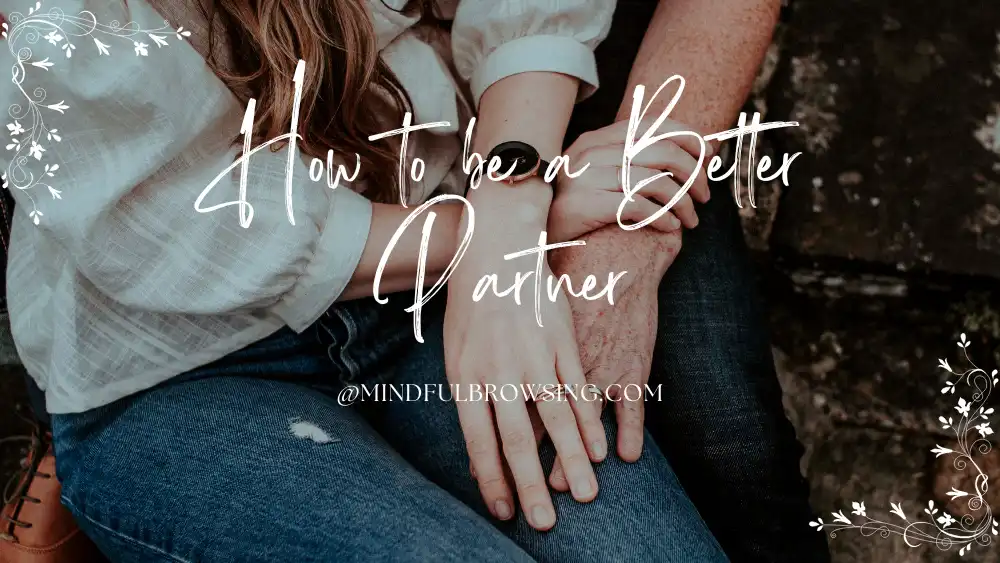
How to Practice Mindfulness in Romantic Relationships (and its Benefits)?
“Mindful time spent with the person we love is the fullest expression of true love and real generosity.” Nhat Hanh
Feeling disconnected in a relationship is insanely common around the world and it leads to…you guessed it. Loneliness! Loneliness is fast becoming a worldwide epidemic.
In 2019, 61% of Americans reported they were feeling lonely and 47% of adults said they feel like their relationships are not meaningful. And these are pre-COVID numbers!
Even if you are not struggling with loneliness and discontentment in your relationship, co-creating a healthy, secure, and long-lasting relationship takes work!
A mindful relationship habits are the foundation of a healthy relationship.
What are the Benefits of Practicing Mindfulness in Relationships?

Mindfulness leads to a more intentional and present relationship, cultivating openness and closeness at the same time. It empowers both partners to better navigate their emotions. Mindfulness also regulates our nervous system, lowering reactivity and enabling us to be more receptive to our partner’s needs.
How to Practice Mindful Love?
Mindfulness in relationships involves presence, intentionality and being attentive to your own thoughts, feelings and triggers within the context of your relationship.
Related: Mindfulness Gifts
1. Set your Guiding Principles

A solid foundation for co-creating a healthy, intentional relationship is setting your core guiding principles, ie your core values! What is most important to both of you in your relationship.
Guiding principles and core values could sound like openness, curiosity, connection, compassion, growth, trust, safety, communication, respect, intimacy, and spirituality.
2. Set an Intention to Pay Attention

Set the intention in the relationship for both partners to be present and attentive when you are with your partner. Create sacred time together, whether it’s at dinner time or in the mornings.
Put away your devices and any distractions and focus on being completely present.
3. Cultivate Self-Awareness

The health of your relationship starts with you. Cultivate self-awareness to understand your triggers, biases and programming.
By understanding your own conditioned responses and patterns you can affect how you show up in times of conflict.
By becoming aware of your own emotions and feelings, you can cultivate an environment of openness and vulnerability.
You can also practice self-awareness during times of conflict. Notice when you are trying to be right, when you are shutting down, when you are scared to open up or when you come from a place of judgment.
Also Read: Benefits Of Green Noise
4. Regulate. Regulate. Regulate

Self-regulation is a healthy way of enabling mindfulness in the relationship. Bring in nervous system regulation practices like breathwork into your daily meditation routine. Training your nervous system will not only help cultivate overall peace and equanimity, it will train you for moments of conflict. Use your breath to slow down and pause during difficult conversations. Another really powerful practice is co-regulation.
“People won’t remember what you said, they won’t remember what you did, but they will remember how you made them feel”. – Maya Angelou
When your nervous system meets another person’s nervous system, a new nervous system is created between you. Co-regulation can sometimes be more powerful than self-regulation.
Co-regulation exercises could look like:
- Synching your breath together with a hand on each other’s hearts
- Sitting back to back and feeling the support of each other’s bodies
- Holding an eye gaze for 3 or more minutes
5. Curiosity and Active Listening

Use curiosity and active listening to further deepen mindful love. Asking simple questions like “How was your day” or “How can I support you” is a simple but overlooked exercise!
Let them share openly and in their own time. If they are going through something difficult, don’t try to fix it. If you’re someone who loves to solve problems, at the start of a conversation ask them “Do you want advise or do you just want to vent?” and use that to guide you.
- Curiosity creates trust.
- Ask the question and mindfully listen.
- Pay attention to their words.
- Pay attention to their emotions.
- Pay attention to their body language.
And when you do that… it makes them feel seen and heard.
6. Show Love Mindfully

This one thing could very quickly transform your relationship!
We all have ways that we like to give and receive love, i.e. our love languages. We often give love in the ways that we either saw our parents give love or the way that we received love from them.
However, if the way you give love is through acts of service, for example and your partner receives love through physical touch…no matter how much you take care of things for them, they will feel unloved. They will feel like they are starving for love in the relationship. And you will feel like nothing you do is ever enough.
A mindful relationship habits involves giving love the way your partner needs to receive love. Make your giving love language their receiving love language.
7. Cultivate a Gratitude Mindset

A gratitude practice is another highly overlooked but transformative tool!
You may have a personal gratitude practice but leaning into it with your partner is extremely powerful!
A Florida State University study followed 120 newlywed couples, tracking marriage satisfaction over a 3 year period. They found that people with more grateful partners ended up being more satisfied in their marriages later on… but only if they were both grateful for each other.
Build a simple gratitude practice with each other:
- Each night at bedtime, share 3 things you appreciated about each other that day
- Write a love/appreciation letter to each other
- Make saying thank you a part of your relationship
8. Relational Mindfulness

This last one is a bit of a catch-all bucket but brings mindfulness, love and compassion to every interaction. When we are compassionate with others, and them with us, our relationships hold more love!
Approach conversations mindfully, intentionally and with love, whether it’s a celebration or a conflict.
Take responsibility for things. Don’t be scared to apologize. Approach conflict as a team.
And, most importantly…set healthy boundaries!













